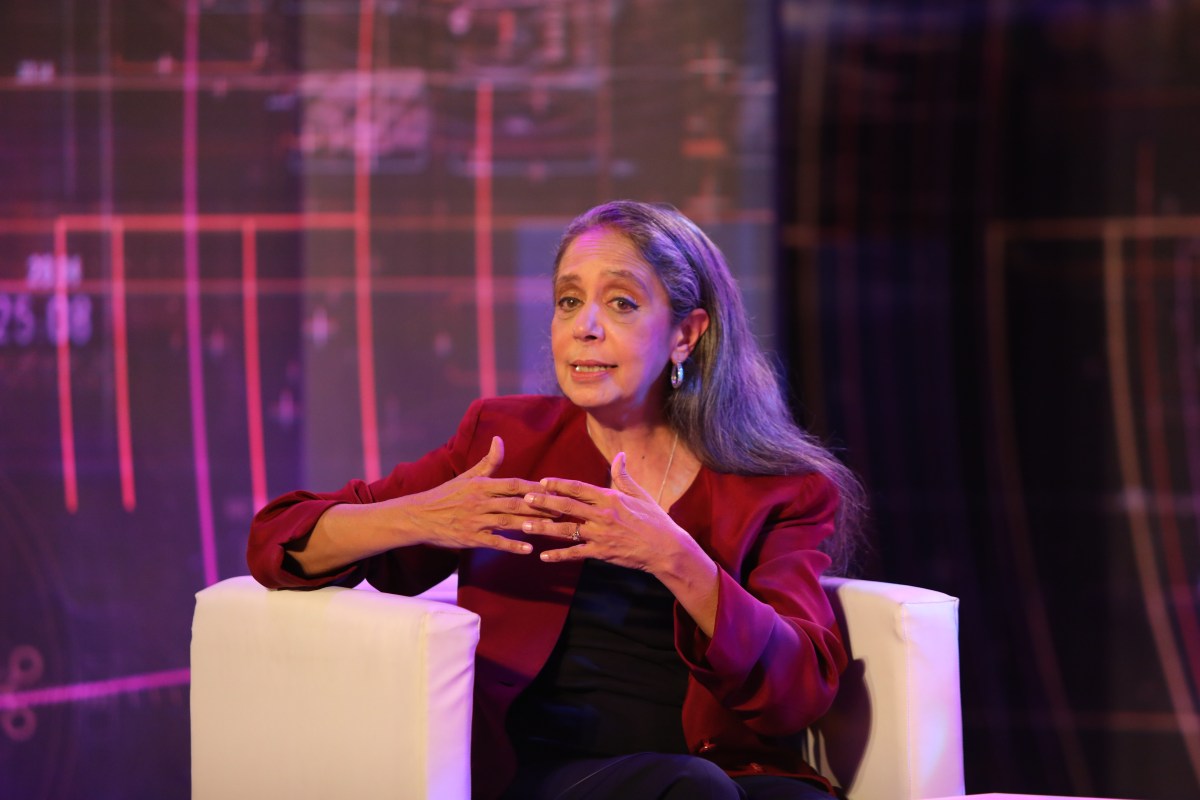AI data platform iMerit believes the next step towards integrating AI tools at the enterprise level is not more data, but better data. And better data doesn’t come from hordes of gig workers, but from experts across mathematics, medicine, healthcare, finance, autonomy, and other cognitive fields.
“What’s become exceedingly important is the ability to attract and retain the best cognitive experts, because we have to take these large models and make them very customized towards solving enterprise AI problems,” Radha Basu, CEO and founder of iMerit, told TechCrunch.
The California- and India-based startup has for the past nine years quietly built itself into a trusted data annotation partner for companies working in computer vision, medical imaging, autonomous mobility, and other AI applications that require high-accuracy, human-in-the-loop labeling.
Now, iMerit is bringing its Scholars program out of beta, the company exclusively told TechCrunch. The goal of the program is to build a growing workforce of experts to fine-tune generative AI models for enterprise applications and, increasingly, foundational models.
iMerit already calls some of the top AI firms customers, including three of the big seven generative AI companies, eight of the top autonomous vehicle companies, three large U.S. government agencies, and two of the top three cloud providers, according to the company.
The news comes as Scale AI, arguably the biggest name in AI data annotation, has lost its founder and CEO Alexandr Wang to Meta, which also acquired a 49% in the company. In the wake of Meta’s investment, many of Scale’s major clients pulled back, including Google, OpenAI, Microsoft, and xAI, out of concerns that Meta could gain access to their product roadmaps.
iMerit doesn’t claim to replace Scale AI’s core offering of high-throughput, developer-focused ‘blitz data.’ Instead, it’s betting that now is the right moment to double down on expert-led, high-quality data, the kind that requires deep human judgment and domain-specific oversight.
“We’re the adults in the room,” Rob Laing, iMerit’s VP of global specialist workforce, told TechCrunch. “A lot of money is being spent on AI right now. There are some very intelligent people building large platforms of human workforces. The output that they’re getting from that mass approach and that very quick speed to market approach is not at the level of quality that enterprises need.”
Basu brought up the example of healthcare scribes that have come to market off the back of foundational large language models.
“If you don’t have the expertise of the cardiologist or the physician, what you’re doing is basically creating something that’s maybe 50% or 60% accurate,” Basu said. “You want that to be 99%. You want to question the model. You want to break it. You want to fix it. That is what expert-led AI is making possible for enterprise.”

iMerit’s experts are tasked with finetuning, or “tormenting,” enterprise and foundational AI models using the startup’s proprietary platform Ango Hub. Ango allows iMerit’s “Scholars” to interact with the customer’s model to generate and evaluate problems for the model to solve.
For iMerritt, attracting and retaining cognitive experts is key to success because the experts aren’t just doing a few tasks and disappearing; they’re working on projects for multiple years. iMerit boasts a 91% retention rate, with 50% of its experts being women.
Laing, whose experience founding the human translation platform myGengo helped him understand how to crowdsource, said it’s relatively easy to get warm bodies to perform menial tasks. Creating community requires a more human-centered approach.
“Instead of someone being a name on a database, when someone joins the Scholars program, they actually meet folks on the team,” Laing said. “They have collaborative discussions. They’re very much pushed to work at the highest possible level. And we are very, very, very selective about how we bring people in.”
“I think what we’re going to see over the next couple of years is that companies like iMerit that are really focusing on that engagement, that retention, and that quality, are going to be the go-to companies for people to train the AI,” Laing added.
Today, iMerit works with over 4,000 Scholars and hopes to bring on more as it scales. Basu told TechCrunch that even though the company hasn’t raised since 2020 – when it brought on investors like Khosla Ventures, Omidyar Network, Dell.org, and British International Investment – iMerit is sustainable and profitable. With its own cash reserves, iMerit can afford to scale to 10,000 experts, Basu said. To scale further would require more outside investment, which iMerit is open to, but not desperate for.
iMerit has been working on Scholars for the past year, mainly with a focus on healthcare. The goal is to grow across other enterprise applications, including finance and medicine. Laing noted that generative AI is its fastest-growing area as top AI firms work with iMerit to improve their foundation models.
“The free data out there on the internet is gone, and the lower level of human input data has also become commoditized,” Laing said. “Where these folks are going is really trying to tune these things to achieve AGI or superintelligence.”








